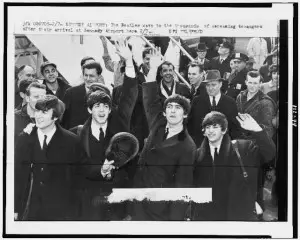Predictions are a kind of foreseeing, which to some extent is gifted to all living beings by way of intuition. It is a common observation that, before taking a wrong step, or before falling into a pit, one staggers for a moment, unconsciously as a warning. Predictions are mostly the fruits of experience or knowledge. Farmers have always forecast the weather changes, based on their previous experience, to get ready for their future endeavors. Politicians have similarly made use of polls to find out about their popularity. Business men know that the future trends are of crucial importance to the success of their businesses; therefore prediction in itself is a big business for them, and huge budgets for marketing research and statistical data analysis are allocated for the purpose. The scope of a prediction may be as narrow as estimating the expected performance of a player in the next match or it may be as universal as trying to calculate the end of the world.
1. Mayan Apocalypse; December, 12, 2012

The Maya Calendar was used by the pre-Columbian Central American cultures, from 2000 BC to the sixteenth century. The Mayan Calendar comprises of three separate calendars, the Long Count Down, the Tzolkin, and the Haab.The Tzolkin and Haab name and trace the days but not years. The Haab consists of 365 days divided into nineteen months, of which eighteen are twenty days each, while one month is five days long. The Haab and the Tzolkin are used simultaneously. The Long Count Down cycle comprises of 2,880,000 days and according to it the creation date of universe is August 11, 3114 BC. According to Mayan belief the world must end at the completion of the cycle. The completion date, translated into the current Georgian calendar, is December 21, 2012. It was predicted that the doomsday was to fall on December 21, 2012 and world was supposed to end on this date at 11:11 UTC. Lots of confusion was found among people who believed in the Mayan Calendar and police even had to take care of the law and order in some places. The prediction of the Mayan Apocalypse proved to be incorrect in any case.
2. Irving Fisher’s 1929 Stock Market Prediction

Irving Fisher was born on February 27, 1867 in Saugerties, New York and died on April 29, 1947 in New York City, New York. He was a famous economist in his time, but only three days before the phenomenal stock market crash leading to the Great Depression, he predicted ‘Stock prices have reached what looks like a permanently high plateau’. After the 1929 Wall Street Crash his repute was damaged beyond repair and the incorrect prediction cost him very heavily in terms of the loss of his personal wealth and the loss of his repute. After the late 2000 recession, a few concepts were named after him, including the Fisher Equation, the Fisher hypothesis, the International Fisher effect and the Fisher Separation theorem.
3. Y2K

Just before the advent of the year 2000, there was confusion in the world of computers. Computer experts realized that software was usually written with the last two digits representing the year, such as ’98 standing for 1998. It was feared that the last two digits ’00 might be considered by the software as meaning 1900, and it may cause unseen problems in digital documentation. An almost unprecedented fear was seen among computer users, and the predicted problem was named the Millennium Bug and Y2K, an acronym for the year 2000. The prediction was incorrect and no untoward incident occurred.
4. Online Shopping

In 1996, before the advent of the Internet, Time Magazine published an article predicting the state of affairs in 2000. The essay, titled The Futurists, predicted that in 2000 the probability of remote shopping would become a possibility, but Time was skeptical about its becoming a reality, commenting that ‘women like to get out of the house, like to handle the merchandise, like to be able to change their minds.’ Though women still do like to get out of the house, they are now used to online shopping on account of many advantages. Time’s prediction proved to be incorrect.
5. Robert Metcalfe’s 1995 Prediction

Robert Metcalfe was born on April,7, 1946 in Brooklyn, New York, U.S. He is an electrical engineer and is best known for co-inventing Ethernet. He is also known for formulating the Metcalfe’s Law. He is the Director of Innovation at the University of Texas in Austin. In 1995, he predicted that the Internet would suffer a catastrophic collapse and promised to eat his words in case he was found incorrect. His prediction was in fact found incorrect and at the Sixth WWW International Conference, during his keynote address, he put his column about the Internet collapse prediction in a blender and consumed the pulp to keep his word.
6. The Titanic

The president of the White Star Line, which produced RMS Titanic, said about the ship prior to its embarking on the maiden voyage ‘There is no danger that Titanic will sink. The boat is unsinkable and nothing but inconvenience will be suffered by the passengers.” Ship’s captain Edward J. Smith predicted ‘I cannot conceive of any vital disaster happening to this vessel. Modern ship building has gone beyond that’. The prediction proved totally wrong, when the supposed unsinkable Titanic hit an iceberg on April 15, 1912 and sank in the North Atlantic Ocean, causing the death of 1,502 people.
7. The Beatles

On January 1, 1962, the Decca producer Tony Meehan auditioned the members of Beatles musical band including Paul McCartney, John Lennon, George Harrison, and Pete Best. They performed fifteen songs in one hour. Decca Records, at their Decca Studios in West Hampstead, North London, decided to reject the Beatles after auditioning them and commented ‘We don’t like their sound, and guitar music is on the way out’. Decca Records predicted failure of the Beatles but they turned out to be a best selling band in the United States. They received seven Grammy awards and an Academy award, and Time magazine included them in the 20th century’s 100 most influential people.
8. Pearl Harbor

Any attack on U.S. Naval fleet was unimaginable for the Americans. The U.S. secretary of the Navy, Frank Knox issued a statement on December 4, 1941 to reassure everyone. He stated ‘Whatever happens the U.S. Navy is not going to be caught napping.’ It was only three days after his prediction that 353 fighters of Imperial Japanese Navy attacked the U.S. Naval base at Pearl Harbor, Hawaii on the morning of December 7, 1941, destroying 8 battleships and 188 U.S. aircrafts. During the attack, 2402 Americans were killed. The U.S. President Franklin D. Roosevelt proclaimed that December 7, 1941 was ‘a date which will live in infamy’.
9. Communism collapsed

The tension between Russia and America remained a threat for global peace during the Cold War. Both initiated the nuclear weapons race and also strove for supremacy in space. Nikita Khrushchev led the Soviet Union from 1953 to 1964. He is noted for pounding his shoe on the table at the United Nations session in 1960. He was probably only too confident when he opined that capitalism was bound to fail and communism was meant to prevail. He said ‘History is on our side’¦We will bury you’. History, in fact was not on their side, as USSR formally dissolved on December 26, 1991.
10. Rocket Mail

United States Post Master General Arthur E. Summerfield predicted ‘before man reaches the moon, mail will be delivered within hours from New York to California, to Britain, to India or Australia by guided missiles. We stand on the threshold of rocket mail’. Although the statement was issued after seeing some successful demonstration, the prediction was never realized, mainly on account of the excessive expenditure necessary to make the rocket mail feasible. A new branch of aerophilately under the name astrophilately was added during this experimental period.
Conclusion:
Superstition and predictions go hand in hand, therefore quite a few of even the most nonsensical predictions attract serious attention by normally sensible people. There were many predictions which proved to be correct, but equally true is that many of them have been incorrect. Many professionals predict the lucky numbers in events like horse races, gambling, and lucky draws Making predictions about the end of the world is always a favorite activity, generally of mischievous people. Many people take such predictions very seriously and do not hesitate to disown or dispose of their properties.










Leave a Reply